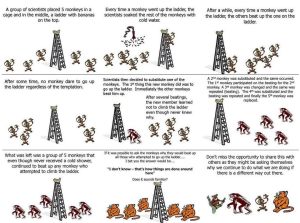We've all heard of Yo Yo Dieting. You realise you've put on more weight than you want. You starve yourself to get to your goal weight and, once there, go back to your old habits only to regain the weight. So you diet again - a cycle doomed to repeat itself.
What yo-yo'ers endeavour to do is crash diet rather than make subtle long lasting changes to their approach to losing weight. Eating less, eating healthy, exercising more.
A similar thing manifests itself in business development. People are comfortable with a normal pipeline - they have work to do, things to focus on, they're busy. It's comfortable. Prospecting is a low priority as why focus on the birds in the bush when you have some in your hand. It's hard and the pay offs are often not immediate.
Then, your pipeline dries up or has a sustained hole. Panic sets in - you start the Yo Yo Prospecting cycle. Starved of business, you are forced to prospect, and quickly.
Their pipeline eventually normalises (hopefully) and prospecting again goes on the back burner. And thus the cycle begins.
What good sales people realise is prospecting is activity you do all the time. The only thing that varies is how much you do based on your pipeline. They know their sales cycle and how far ahead they need to be initiating prospecting contacts before they have a chance of securing the business. If it takes you 6 months from initial contact to securing a new client - what chance do you have if you are sitting in a hole in your pipeline today?
You prospect to fill the gaps in your pipeline, not because you're in one! It is too late then.
Only a small change is required - set aside time each week to focus on this activity. Treat it like an appointment. Make those subtle long lasting changes today!



